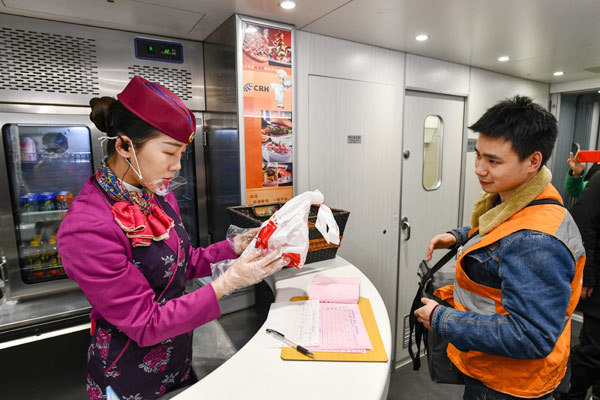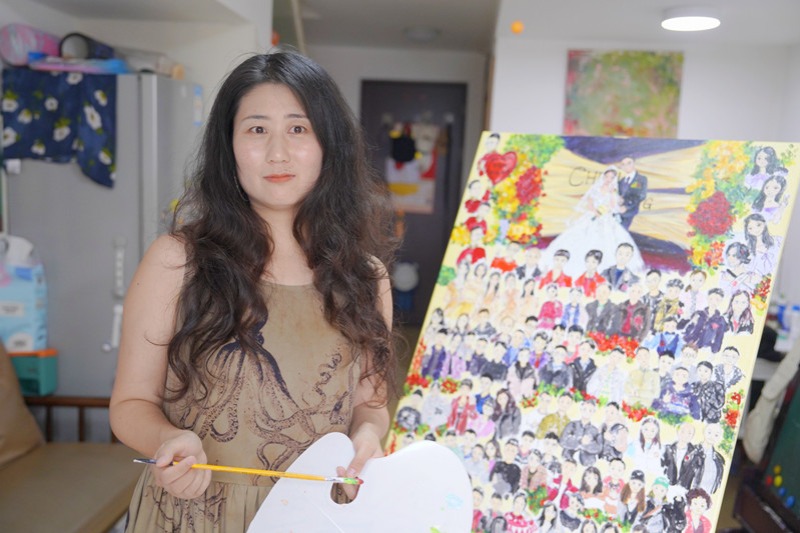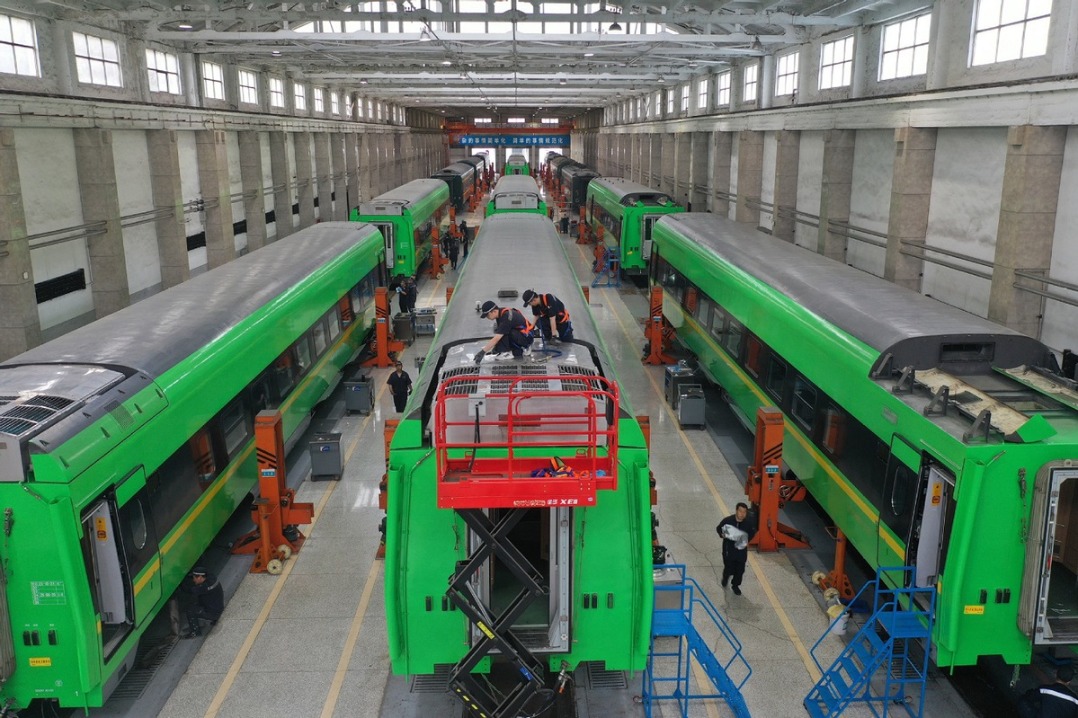Taking the stress out of holiday travel rush


Airports and train stations in major cities introduce advanced technology, upgraded facilities
The rapid expansion of China's road, rail and air networks has solved most of the traditional problems associated with travel during Spring Festival, such as the fierce competition for tickets and traffic gridlock.
Now, the country's transportation authorities are focusing on passenger comfort and convenience.
An estimated 2.98 billion journeys are expected to be made during this year's 40 day Spring Festival travel rush, which runs from Feb 1 to March 12, according to the National Development and Reform Commission.
The prefestival peak has already approached. According to China Railway Corp, since Feb 1, the national railways handled 89 million trips by Saturday.
Leading the way are airports and train stations in major cities, where advanced technology and upgraded facilities have helped remove some of the stress from traveling home or abroad for Lunar New Year, which this year falls on Feb 16.
Shen Peilan has had a habit of missing trains and flights in the past, so she would regularly leave her home in Wangjing, northeast Beijing, three hours before her departure time to make sure she made it to her seat in time.
On Tuesday, however, when she plans to catch a flight home to Shanghai for the holidays, she will leave just 90 minutes before.
"It'll be a bit of a rush, but the fast lane at Beijing Capital International Airport and the'QR code boarding pass' will save me lots of time," the 32-year-old interpreter said.
Beijing Capital International Airport, the country's busiest, has opened an express lane for passengers traveling to Shanghai, while those who check-in online will be able to simply present a QR code to pass security checks and the boarding gate.
"I've done online check-in before using the QR code and I haven't missed any flights," Shen said. "It's very fast, and there's no waiting in lines. It cuts out some of the boredom."
Air China, the nation's flagship carrier, opened eight self check-in baggage desks at Beijing Capital International Airport last month to improve efficiency. They allow passengers on selected services to check their own luggage by putting it on a conveyor belt with no need to line up.
The airline also granted travelers on certain air routes at 22 airports worldwide the right to use QR codes on board instead of printed boarding passes.
Around 65 million of those journeys will be completed by air, a 10 percent year-on-year growth.
Good news for those who like to choose their entertainment or chat with faraway friends mid-flight is that the Civil Aviation Authority of China announced in January that passengers are now allowed to use mobile devices on airplanes.
Several carriers, including Hainan Airlines and China-Southern Airlines, have said they will be lifting the ban on smartphones.
On the ground, airports are also adding features to make journeys more enjoyable, particularly for parents. Beijing Capital International Airport has set up mother-and-infant rooms equipped with sinks, singlehand operation tables and breastfeeding chairs.
Each terminal also has themed play areas to help parents keep their children entertained.
Train stations will as usual see a lot more traffic than airports this Spring Festival. The NDRC estimates more than 390 million journeys will be made by rail, up by 8.8 percent compared with the same period last year.
China Railway Corp, the national rail operator, launched several measures to improve services and benefit travelers.
For example, the official 12306.cn ticket booking system increased the daily sales capability to 15 million tickets from 10 million tickets this year.
Catering services have also been upgraded. As well as purchasing food on the train, passengers have been able to order food from station restaurants to be delivered to their seat as soon as the train pulls into the station since mid 2017. However, now the minimum order time has been halved to just one hour before delivery, while the meal options have been increased.
Waiting passengers also enjoy better services at train stations.
Zhang Chengbin, a construction worker in Guangzhou, has returned to Chongqing every year in the past 10 spring festivals. Each year, he boarded a train at the Guangzhou South Station during the travel rush and has witnessed the change of the station.
"The station's environment becomes better and the service improves, such as the new nursing room and playground," he said, while watching his two grandchildren playing at the station's amusement playground, which had a slide and rocking horses.
"Without the nursing room and playground, it was difficult to manage two children," he said.
- Guideline aims to curb irregular cosmetic surgery pricing
- Committee formed in Guangzhou to guide the building of 'lake + green development zone'
- Shanghai Mint brings coins and medals to London
- Chinese customs seize over 40,000 fake Labubu toys
- Torrential rains cause flooding in Guangdong townships
- Xiamen artist captures fleeting wedding emotions on canvas





































